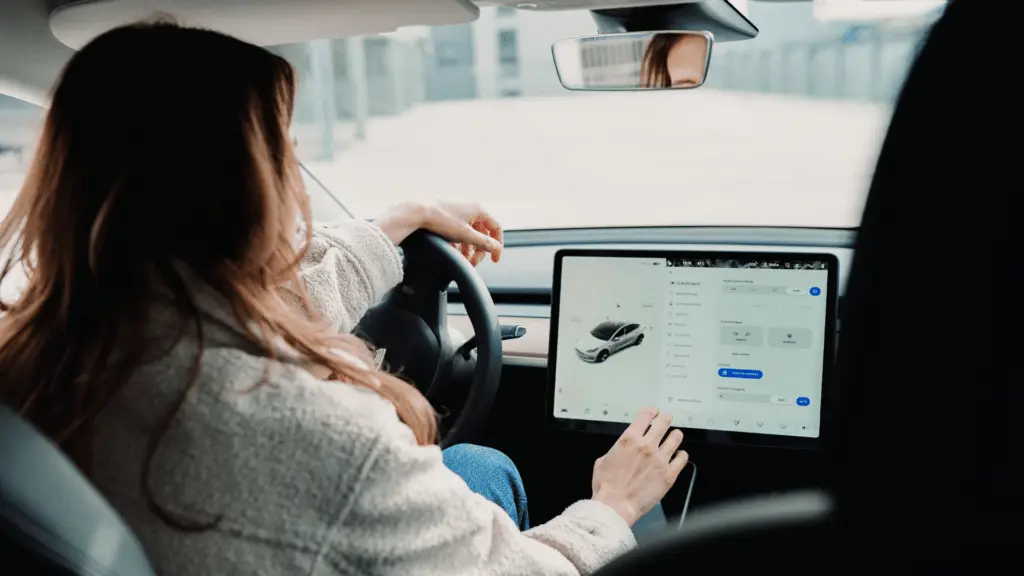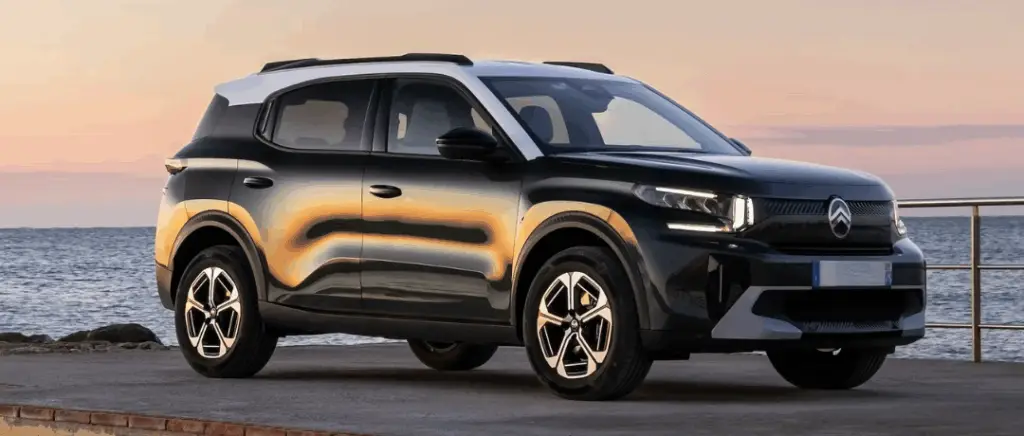Monday to Friday 9am - 12.30pm - 2pm - 7pm
What is car taxation for the self-employed?
As a self-employed professional, you're probably looking for information on car taxation. It's sometimes difficult to find out what benefits you can enjoy when you buy a car to use for work. Our guide to car taxation for the self-employed is here to help. Beev is here to simplify your ecological transition. Throughout this guide, we will outline the various advantages of switching to an electric vehicle.
If you're self-employed, your car is one of your working tools. Especially if you don't have a fixed place of work and have to travel frequently. So it's important to think about car tax exemption.
But what does car tax exemption for the self-employed involve? The aim is to reduce the charges and tax on your company car. This will take into account the depreciation of the electric vehicle and its batteryIt also provides information on how it is financed and any exemptions.
A quick reminder: you come under the BNC scheme if you are a self-employed professional with a turnover in excess of €70,000 a year. If your turnover is less than €70,000, you are covered by the micro-BNC scheme.
Car tax exemption for the self-employed
Buying a company car is often one of the biggest items of expenditure for the self-employed. So it's important to ask yourself the right questions about your needs. Not only will this help you find the right electric vehicle for you, it will also help you make the right decision about how to finance it.
La taxationAutomobile tax on the liberal professions is not the easiest subject to understand. That's why we're here to guide you through the entire process.
Let's start with two important criteria for tax exemption on an electric car for the self-employed.
Who should buy an electric vehicle for self-employed professionals?
You have two options if you are considering buying your company car. Either you decide to buy your electric vehicle in the name of your company. Or you can register it as a private asset, making it a private vehicle.
We advise you to register it in your company's name to make it more attractive for you.
Here are the differences between the two purchasing decisions:
| Véhicule enregistré au nom de l'entreprise | Véhicule inscrit dans le patrimoine privé | |
|---|---|---|
|
Usage
|
You can deduct depreciation, loan interest and any other charges relating to the vehicle on a pro rata basis.
You are subject to tax on the use of passenger vehicles for economic purposes
|
You cannot deduct any car-related costs, such as interest on a loan, vehicle registration or maintenance. You cannot depreciate the vehicle. You can, however, deduct expenses relating to its use, such as fuel.
|
|
Resale
|
On resale, the value of business capital gains will be taxed at the standard rate (corporation tax rate).
|
You are not subject to capital gains tax.
|
What is accounting depreciation? In simple terms, fixed assets are, by definition, goods that are intended to be used over a period of several years. The value of their acquisition must be greater than €500.
Discover several models of electric vehicles that can be delivered quickly!
The vehicle financing method: leasing, LOA or LLD
If you're wondering which method of financing to choose, there are several to choose from. Today, we're going to take a look at the three most commonly used methods of financing the purchase of an electric car for the self-employed.
Firstly, the cash or loan purchase, which simply involves buying the car as mentioned in the previous paragraph. You can, however, decide to pay for the car yourself or approach a bank to take out a loan.
Secondly, you can opt for leasing, if you register your car in the company's name. Or a lease with an option to buy (LOA), if you want to register your electric vehicle in your private assets. In both cases, the lease is for a fixed term, and allows you to buy the vehicle at the end of the contract.
Finally, you can opt for a long-term lease (LLD). As a general rule, these are four- to five-year contracts. The advantage of a long-term lease is that you can change vehicle at the end of each contract, to take advantage of a newer vehicle or to test other electric car models.
| Achat comptant ou emprunt | Location avec Option d'Achat (LOA) | Location Longue Durée (LLD) | |
|---|---|---|---|
|
Amortization
|
You can deduct the interest on the loan if you buy on credit
Depreciation is also deductible, subject to the maximum limit for your vehicle
|
The car is not on the balance sheet.
There is no depreciation to be recognised during the lease period.
|
The car is not on the balance sheet.
There is no depreciation to be recognised during the lease period.
|
|
Tax on the use of passenger vehicles for economic purposes
|
You are not subject to tax on the use of private cars for economic purposes.
|
You are not subject to tax on the use of private cars for economic purposes.
|
You are not subject to tax on the use of private cars for economic purposes.
|
Passenger cars and commercial vehicles are depreciated on a straight-line basis over 4 or 5 years (i.e. at a rate of 25 or 20 % per year).
Expenses relating to the operation of vehicles are deductible from taxable profits. Depreciation takes account of the depreciation in value of your vehicle over time: it can therefore be considered as an asset. burden for your company. Depreciation applies only to private cars and is subject to a ceiling.
You should also be aware that the eco-bonus can be applied regardless of how you finance your car. However, Bruno Le Maire, the French Minister for the Economy, has announced that the ecological bonus will be reduced to €5,000 in 2023, compared with the current €6,000 for electric cars costing less than €47,000. What's more, he plans to reserve this bonus for vehicles manufactured in Europe. So if you're thinking of going electric, you can get in touch with our team right now to get your project off the ground.
Lease an electric car
Would you like to lease an electric car? Beev offers you 100 % electric cars at negotiated prices, as well as recharging solutions.
Depreciation of electric vehicles for the self-employed in 2023
Depreciation limits have also changed somewhat over the years. With the aim of reducing CO2 emissions from combustion-powered cars as much as possible, the depreciation ceilings give electric vehicles an advantage. Here are the figures for 2022 and 2023. Please note that this table is subject to change, but we are here to ensure that you have the most up-to-date information.
| Plafond | 2022 | 2023 |
|---|---|---|
|
30 000 €
|
<20 g CO2 /km
|
<20 g CO2 /km
|
|
20 300 €
|
<20 g to 50 g
|
<20 g to 50 g
|
|
18 300 €
|
from 60 g to 135 g
|
from 60 g to 130 g
|
|
9 900 €
|
>of 135 g
|
>More than 130 g
|
Amortisation of electric car batteries
It is also possible to write off the battery of your electric vehicle, which is considered to be part of your vehicle's equipment and can therefore be written off on the basis of an invoice from your dealer.
The battery's damping base is located between €10,000 and over €30,000 depending on the power of the battery and the vehicle and can be carried out either over one year or over the vehicle's depreciation period.
Remember to ask for two invoices, one for the electric car and one for the battery.
Also read - Taxation of electric vehicles 2023: your advantages
Taxation of electric cars for the liberal professions
As we saw above, electric vehicles benefit from higher depreciation than other types of vehicle. In fact, you can write off €30,000 of the cost of the vehicle, i.e. almost €15,000 more than for internal combustion vehicles. And if we were to tell you that there are still some advantages to buying an electric vehicle...
Exemption from vehicle registration tax
Exemption from vehicle registration tax is decided at regional level. To support the adoption of clean vehicles, several regions have voted to exempt electric vehicles and certain clean vehicles from registration tax.
Exemption from tax on the use of passenger vehicles for business purposes
The tax on the use of private cars for business purposes is a tax that applies to companies that have their registered office in France or an establishment in France. This tax is levied on passenger vehicles used, owned or leased by them. The purpose of a passenger vehicle is to transport people. It has a maximum of 9 seats, including the driver. It has a rear bench seat and can carry more than 2 people. It is labelled as a passenger car on the J.1 section of your vehicle registration document.
Tax on the use of private cars for business purposes is payable each year to the Service des Impôts des Entreprises (SIE).
Since 2006, the tax on the use of private cars for business purposes has been calculated according to a progressive scale that takes into account a number of criteria:
- The vehicle's CO2 emissions
- The date of registration
- Vehicle fuel (diesel, petrol)
The aim of this progressive approach is to encourage companies to renew their vehicle fleets in favour of newer, less polluting vehicles. Visit electric vehicles are not subject to tax on the use of passenger cars for economic purposes. This exemption only applies to vehicles emitting less than 60g/km of CO2.
This is it! You know all about taxation for the liberal professions. Do you have a question? Don't hesitate to leave us a comment!
Read also: 2023 mileage barometer: what allowances?
































